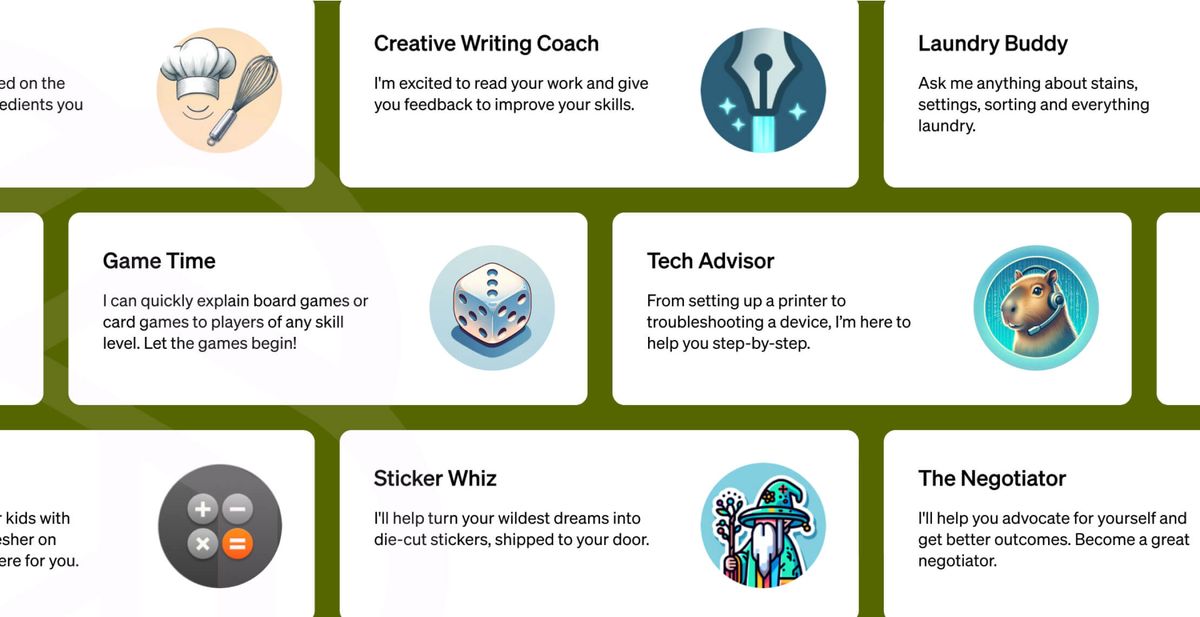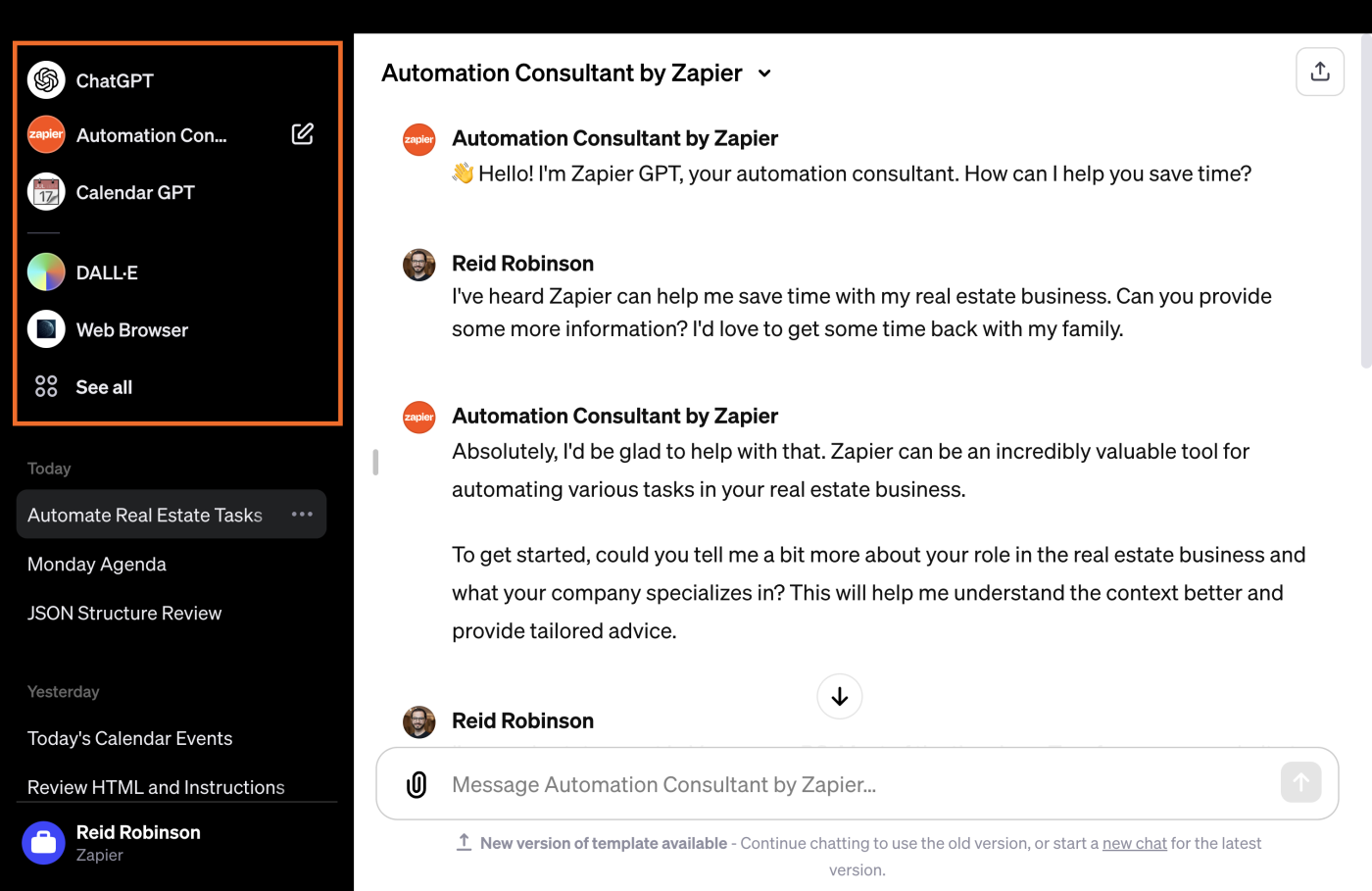
OpenAI has announced the launch of GPTs, a new capability that allows anyone to create customized versions of ChatGPT enhanced with specialized skills, knowledge bases, and real-world actions. With GPTs, builders can share tailored AI without needing to code, democratizing access to creating helpful AI tools.
Anyone can easily build their own GPT—no coding is required. You can make them for yourself, just for your company’s internal use, or for everyone. Creating one is as easy as starting a conversation, giving it instructions and extra knowledge, and picking what it can do, like searching the web, making images or analyzing data.
GPTs represent OpenAI’s goal of enabling more people to shape beneficial AI. By expanding the group that can build AI beyond those with advanced technical skills, GPTs help steer the technology toward uses that benefit society.
OpenAI plans to open the GPT Store later this month, where verified creators can publicly share their GPT creations. The store will highlight popular, useful GPTs across categories like productivity, education, and entertainment. Builders will eventually earn money based on usage of their published GPTs.
OpenAI says GPTs were designed with privacy and safety as priorities. User conversations with GPTs are kept private from builders. APIs used by GPTs must be explicitly permitted by users to access any data.

OpenAI has implemented systems to review GPTs for policy violations before publication. The company has also enabled builder identity verification to build user trust. Users can report concerning GPT behavior directly to OpenAI.
Developers can go beyond ChatGPT’s base capabilities by integrating external data sources, workflows, and APIs. For instance, they may connect a GPT to a database, email inbox, or e-commerce order system to enable real-world usefulness.
For enterprise customers, GPTs allow creating tailored AI assistants for proprietary data and specific business use cases. Early adopters are using internal GPTs for branding content generation, customer support, and onboarding aids. Enterprise GPT conversations are not used to train OpenAI's models.
Overall, OpenAI emphasizes that GPTs represent an incremental, measured step toward real-world useful AI. They urge adapting gradually as advanced AI capabilities raise important technical and ethical considerations for society.
OpenAI is rolling out GPTs to all ChatGPT Plus and Enterprise customers this week.

